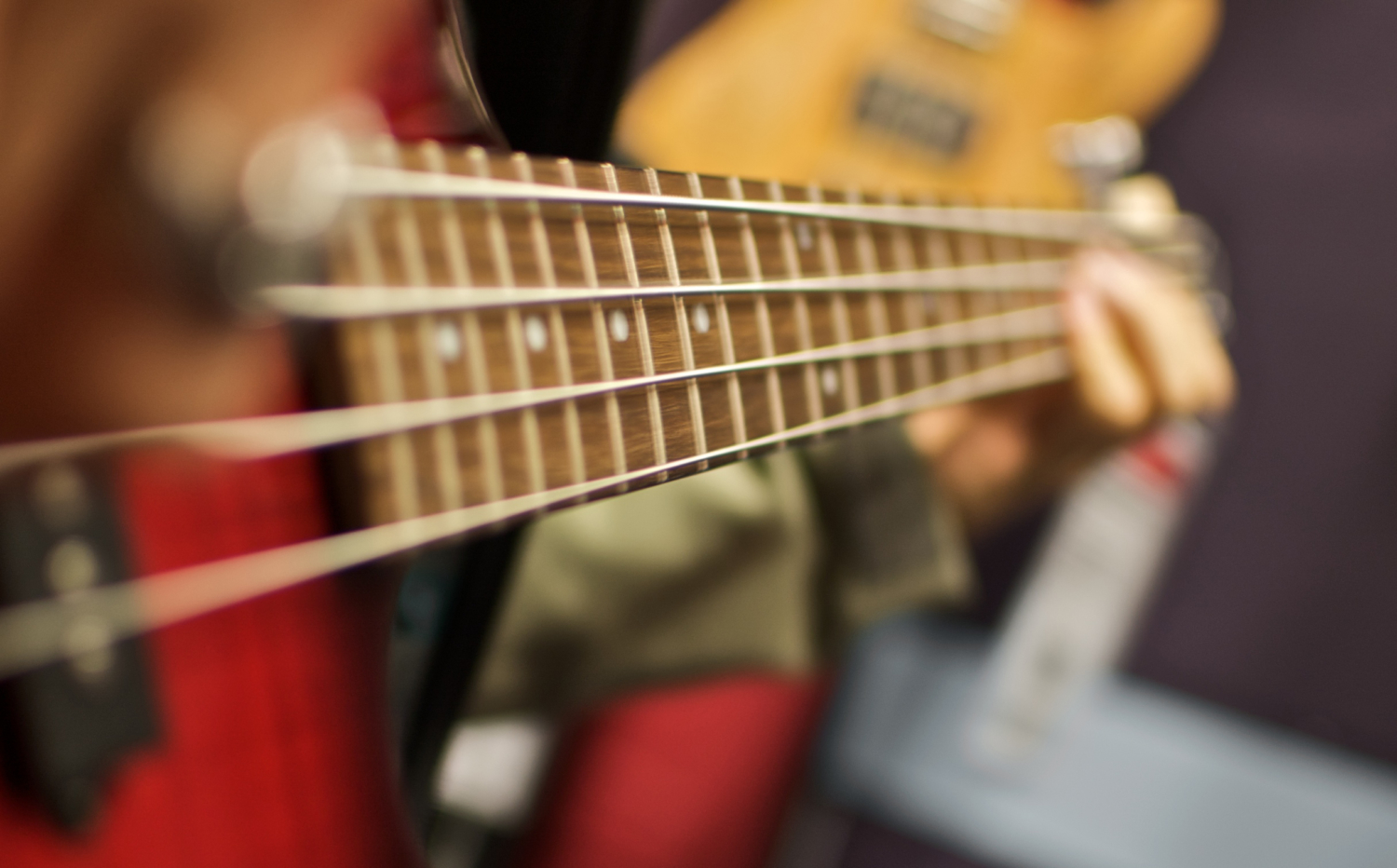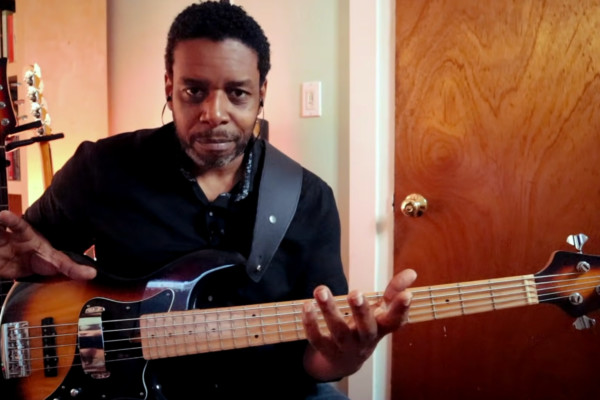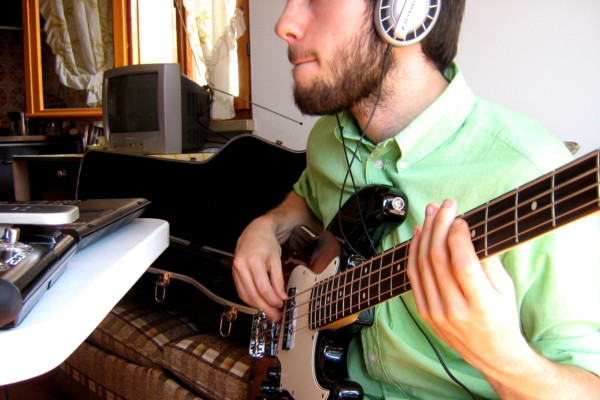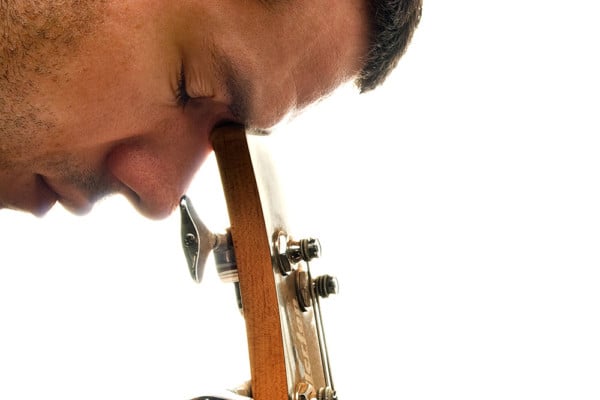Choosing a Direction: Focusing on Your Approach to Bass and Music

Q: I am an intermediate bass player and I am a fan of several different bass players. I love the way Janek Gwizdala composes, plays chords and creates music using a looper. I can’t get enough of Gary Willis and his amazing groove as well as his fretless tone. I also love listening to guys like Sean Hurley and Jonathan Maron play absolutely amazing bass for some of my favorite songs. The problem is I find myself pulled in too many directions with regards to what I want to work on and how I sound. It even affects my choice of equipment – I move from 5 string tuned E-C to fretless bass to precision bass depending on who I am listening to most at the time. Does this type of thing damage a player’s growth and lead to confusion? I know I feel confused. While I know influences are important, should I focus on one at a time? Should I try and figure out what I really love about each and try to incorporate it into finding my own sound/style? I’m curious if you have ever experienced this during your development as a player.
A: This is another subjective response, as everybody learns differently and different things work for different people. My personal take is that it might be best for you to dive a bit more deeply into one thing at a time, so they can better integrate into your playing and foster internalization.
The big question: for how long do you focus on each “thing” or style before getting into something else? I also have questions regarding what your musical life looks like outside of the shed.
Are you gigging? How does one player’s approach over another relate to the gigs you are taking? I assume that there is still some foundational work to be done and if you are mostly playing top 40 gigs or function band type stuff, it might behoove you to dive more deeply into the more functional side of things first (ie: fewer chords and soloing and more Jamerson, Pino, etc… Work on tone, feel, stylistic awareness, etc.)
That said, you also need to make it fun because the more fun you are having when practicing, and the more engaged you are with it, the more you will get out of it.
It may sound like I’m giving conflicting advice, but I think the most efficient and functional way to go about it is to truly organize your thoughts with regard to what you want to work on and who you want to dive into more deeply and then organize your practice regimen around it.
If you can practice two hours per day, then you have all the time in the world. Actually, it’s been proven that we tend to internalize material best by interleaving the information we work on instead of hammering away on one thing endlessly before moving on.
For example, if you want to learn 3 scales, you could spend one day on each scale and feel like you’ve got a pretty good grasp on each one but, in actuality, if you were to spend 3-5 minutes per scale, and keep cycling through them, even though you may feel more confused initially, the material becomes more deeply internalized in the long run.
So, I would recommend that you take the amount of time you have to shed each day and prioritize what you want to work on. Create a lesson plan and pick the top 3 things that you feel you need to focus on, then divide your time between them.
Personally, I like to objectively look at my playing and find the gaps in my knowledge. Then I’ll divide my practice time into 3rds and focus on two things that are developmental needs and one thing that is just something I personally want to explore (or you could divide your time into 6ths. cycling 3 things twice).
For example. If you have two hours..
- 20 min: Melodic minor modes
- 20 min: walking bass lines
- 20 min: double thumb technique
Then repeat the cycle.
You could hang on to that lesson plan for a few days. a week. a month. whatever feels right to you, and then re-evaluate and come up with 3 different things to continue to cycle through the material in a long-form fashion as well.
With regard to your sound and emulating different people. That’s fantastic and a great way to explore what you want your voice to be (as it will likely become a hodgepodge of everybody you’ve emulated in your playing, along with your inevitable personal take on how the instrument is played and you came to understand and navigate it. It’s great to explore how to get different sounds, work on your fretless intonation, etc.. I don’t think you should feel scattered about it, just pick the voice that best suits the music that you’re playing! The more you’ve explored how to get different tones (via the combination of techniques and gear), the better you’ll likely be at really nailing your gigs stylistically.
You have to be patient. I definitely went through periods where I felt scattered. Like I understood a bit of everything but not enough to be proficient at anything. I knew just enough to confuse myself for years. It’s a natural phase and a sign that you are evolving and growing.
You truly just have to trust the process and know that with every little thing you learn and internalize, the next thing will make more sense and, eventually, it will all start to coalesce and take the form of YOUR voice.
Have a question for Damian Erskine? Send it to [email protected]. Check out Damian’s instructional books, Right Hand Drive and The Improviser’s Path.




Hey fellow Bassist i suggest u be yourself u will never be anyone n no one can be u we are all talented in our own great way! second IMO a bass is d foundation of a groove song jus check out Masters James Jamerson n Jaco all done on four! When u have achieved that status ur den allowed to adds a extra string n don’t play it if u don’t feel it again IMO one??Phil Chen OD ???????
Thanks Damian, just about the best advice I’ve ever come across to organize my practice.
Thank you so much for this great question and your wonderful reply.I could have written that question myself. It’s been such a big issue for me for decades! Sometimes I am so overwhelmed by wanting to do everything that I do nothing. Now I’m starting to try to work by developing my priority lesson plan and committing to it for three months before evaluating my work and sdeciding what the next three month chunk will be. Wish me luck!